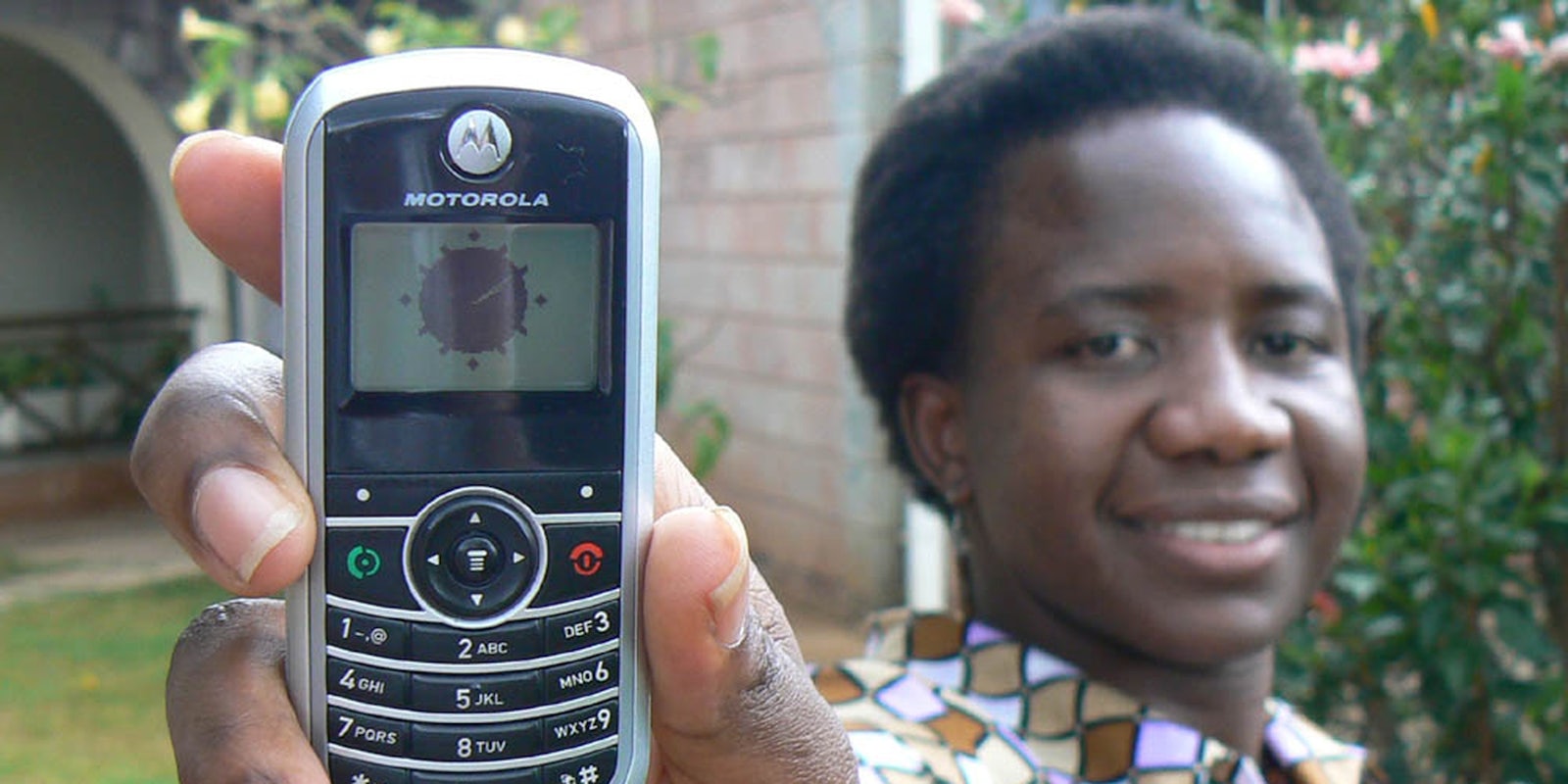When I think about the impact of technology on the world, my mind leaps to the few usual suspects—iPhones, Google, Facebook, Firefox — you name it. I think of the technology that I interact with every day, the technology that improves small processes within my life in an American city. I even think about how to use my technology intentionally, so that it doesn’t become overwhelming — I turn off email push notifications after a certain time, I set up automatic bill pay, and I try to end my night by reading a book instead of staring at a screen. I live in a developed, endlessly connected world, and I’m always looking for little ways to unplug from it.
Friday, according the United Nations, was the International Day for the Eradication of Poverty, and this year’s theme is “Leave no one behind: think, decide and act together against extreme poverty.” This got me thinking about technology — not about iPhones or Firefox — but about technology that we can activate to help the underdeveloped world, about technology that can help include people who have been left behind.
1) Mobile banking
According to a U.N. report, more people have mobile phones around the world than have access to a flushing toilet. Several years ago, a few savvy entrepreneurs in places like Mexico, Pakistan and Bangladesh came up with the clever notion to allow cell phone owners to deposit money into an account stored on their phones and then send or receive money using simple SMS technology. Put simply, M-PESA users (the most famous success in mobile money thus far) in Kenya can do most everything you can do with your Bank of America app — without access to a smartphone. This has revolutionized transactions in places where banks at ATMs can be hundreds of miles away for rural residents.
2) Machine-to-machine technology
Another challenge that rural residents face is access to electricity. Oftentimes they’ll be forced to use dangerous kerosene lamps for light, or travel for hours just to pay an electricity bill. Thankfully, that’s already changing. Technology that allows machines to talk to other machines, or M2M tech in more jargon-heavy circles, allows a rural resident to purchase, say, an electric lamp, which can then be used to teach his or her children to read at night. While that lamp and the electricity powering it would have normally been prohibitively expensive, the type of technological solutions from startups like Eseye allows for the utility owner to be connected to the device itself — so that they can implement a “pay-as-you-go” type system. This way, that rural farmer can pay only a small amount at a time, based on the amount of energy that they use. Machine-to-machine technology for the developing world can help us broaden access to electricity, which makes thousands of lives safer, easier, and more efficient.
3) Big data
The phrase “big data” tends to conjure a picture of the NSA hacking into your email, or Google tracking your every movement on the Internet. But big data can also help in the fight against poverty. By examining the trends provided to us through unstructured online data, we can begin to form a story about those people whom have previously remained “off-the-grid”, or, in the financial world, “unbanked.” For example, it’s hard to get a loan when you don’t have any credit history. But what if financial institutions could use big data to tell the story about those “thin-file” type clients that a traditional credit check could not? Startups like DemystData, for instance, are doing just that.
These trends, along with the startups and markets driving them, aren’t miracle cures for poverty by any means — but what they can do is broaden access, to make the Web work for people who have been left out of the system for decades. At Accion, that’s what we believe financial inclusion is all about — handing people the tools they need to improve their lives around the world. For us #EndPoverty is a call to action — and we are harnessing the power of the Internet as yet another way to get there.
This piece originally appeared at Medium, and has been reprinted with permission.
